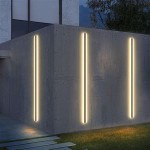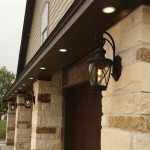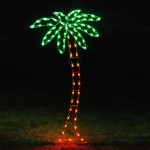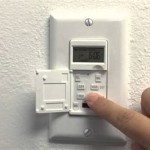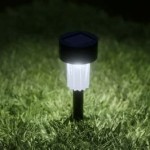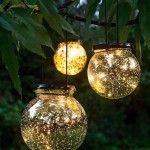What Kind of Outdoor Lights Do Not Attract Bugs?
Enjoying your outdoor space at night can be an idyllic experience, but pesky insects can quickly turn it into an annoyance. While outdoor lighting enhances safety and ambiance, it often attracts unwanted guests – bugs. Thankfully, you can enjoy your outdoor lighting without attracting swarms of insects by choosing the right type of bulbs. This article delves into the world of bug-deterring lighting, exploring the science behind insect attraction and highlighting effective alternatives that minimize their presence.
Understanding Bug Attraction to Light
The allure of light for insects is a complex phenomenon driven by several factors. One key aspect is phototaxis, the tendency of organisms to move towards or away from light sources. Many insects exhibit positive phototaxis, meaning they are drawn to light. This behavior is particularly pronounced in moths and other nocturnal insects, who use the moon and stars for navigation. Artificial light sources, especially those with short wavelengths like blue and ultraviolet, can confuse these insects, causing them to fly towards the light instead of their intended path.
Another factor contributing to bug attraction is the heat generated by light bulbs. Warm light sources, such as incandescent bulbs, emit heat that can attract insects, particularly those seeking warmth or a place to lay their eggs. Furthermore, certain light colors and intensities can trigger specific behavioral responses in insects. For instance, certain insect species are attracted to specific wavelengths of light, making them more prone to being drawn towards particular types of bulbs.
Effective Lighting Alternatives
Fortunately, several lighting solutions exist that minimize bug attraction without sacrificing outdoor ambiance. These alternatives focus on reducing the light's intensity, shifting its color spectrum, or employing other strategies to deter insects:
1. Yellow Bug Lights
Yellow bug lights are one of the most popular solutions for reducing insect attraction. These bulbs emit a yellowish-orange light that is less appealing to insects compared to white or blue light. The longer wavelengths of yellow light are less disruptive to insects' natural navigation patterns, making them less likely to be drawn towards the light. Yellow bug lights are available in various forms, including traditional incandescent bulbs, LED bulbs, and even string lights.
2. LED Lights with Low Blue Wavelengths
LED lights have emerged as an energy-efficient alternative to traditional lighting options. While some LED lights emit a blue-white light that can attract insects, there are specific LED bulbs designed to minimize bug attraction. These bulbs emit a warm white light with reduced blue wavelengths, making them less tempting to insects. Choosing LED bulbs with a Color Rendering Index (CRI) of 80 or higher can also improve the quality and warmth of the light, enhancing the overall ambiance of your outdoor space.
3. Motion-Activated Lights
Motion-activated lights offer an effective way to illuminate your outdoor space only when needed, minimizing unnecessary light pollution and reducing insect attraction. These lights activate only when movement is detected, illuminating areas for brief periods, deterring insects that are attracted to continuous light sources. This approach helps conserve energy and minimize the potential for attracting insects while providing adequate security lighting.
4. Shielded Lights
Shielding your outdoor lights can also help reduce bug attraction. By directing the light downwards or away from open spaces, you minimize the amount of light that reaches insects in surrounding areas. This is particularly effective for porch lights and walkways, where light can easily spill out into the surrounding environment. Shielded lights not only reduce insect attraction but also enhance safety and improve aesthetics.
Tips for Minimizing Bug Attraction
Beyond choosing the right type of light, several additional tips can further minimize insect attraction in your outdoor space:
- Reduce clutter: Insects are attracted to clutter and debris, providing them with places to hide and nest. Regularly clean up around your outdoor space to remove potential insect habitats.
- Keep plants trimmed: Overgrown plants and shrubs can harbor insects and provide them with easy access to your lighting. Trim your plants regularly to reduce potential insect nesting sites.
- Use mosquito repellents: Mosquitoes are notorious for their love of light and are known to swarm around outdoor light sources. Use insect repellents containing DEET or picaridin to deter mosquitoes and enjoy your outdoor space without being bitten.
By understanding the science behind insect attraction to light and implementing the appropriate lighting solutions, you can enjoy your outdoor space at night without being bothered by unwelcome insects. Embrace these alternatives and enjoy the beauty of your outdoor lighting, free from the annoyance of buzzing and flying pests.

Are There Outdoor Lights That Don T Attract Bugs Dusk Lighting Blog

6 Outdoor Lights That Don T Attract Bugs Balcony Boss

Do Led Lights Attract Bugs Outdoor Lighting

Outdoor Lighting That Doesn T Attract Bugs

Do Led Lights Attract Bugs 1000bulbs Blog

Outdoor Lighting Options That Won T Attract Bugs Vulcan Termite Pest Control

Do Led Lights Attract Bugs Super Bright Leds

Outdoor Lights That Don T Attract Bugs

Do Led Lights Attract Bugs Super Bright Leds

Do Led Lights Attract Bugs Outdoor Lighting

